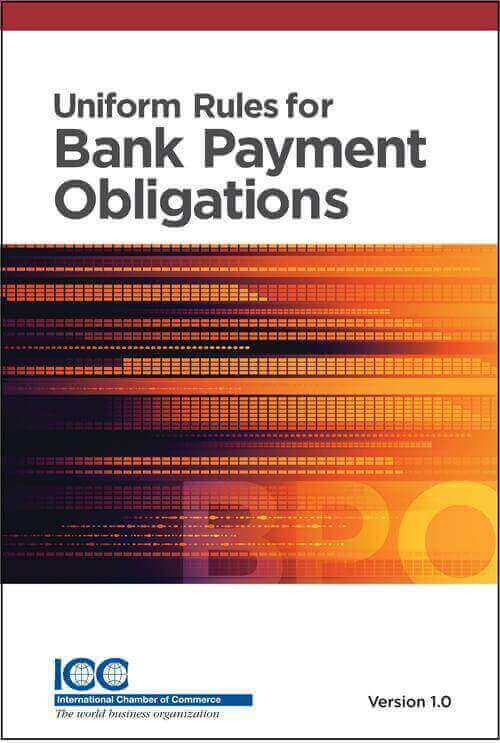What Does URBPO Mean?
The URBPO are the Uniform Rules for Bank Payment Obligations ICC publication No. 750.
URBPO were approved by the ICC national committees and entered into force on 1 July 2013.
Bank Payment Obligations (BPO) is a new payment option for international trade finance. It will be located somewhere between an open account and letter of credit.
Banks play a key role on the Bank Payment Obligation transactions.
The ICC has set itself an ambitious goal to introduce an innovative way for trading counterparties to secure and finance their open account trade transactions via their banking partners.
The new instrument called “Uniform Rules for Bank Payment Obligations” (URBPO; also referred to as ICC URBPO or ICC BPO rules) will enable importers and exporters to involve their preferred banking partners in their trade transactions and get flexible risk and financing services.
Based on standardized messaging and advanced transaction matching operated by SWIFT, this new instrument will accelerate the financial supply chain in support of ever accelerating physical supply chains.
What are the Headings of URBPO?
URBPO consists of total 17 articles.
- URBPO – Article 1 Scope
- URBPO – Article 2 Application
- URBPO – Article 3 General Definitions
- URBPO – Article 4 Message Definitions
- URBPO – Article 5 Interpretations
- URBPO – Article 6 Bank Payment Obligations (BPO) vs. Contracts
- URBPO – Article 7 Data vs. Documents, Goods, Services or Performance
- URBPO – Article 8 Expiry Date and Submission
- URBPO – Article 9 Role of an Involved Bank
- URBPO – Article 10 Undertaking of an Obligor Bank
- URBPO – Article 11 Amendments
- URBPO – Article 12 Charges
- URBPO – Article 13 Disclaimer on Effectiveness of Data
- URBPO – Article 14 Force Majeure
- URBPO – Article 15 Unavailability of a Transaction Matching Application
- URBPO – Article 16 Applicable
- URBPO – Article 17 Assignment and Transfer
How URBPO 750 Can be Applied to the Bank Payment Obligations ?
The BPO is an irrevocable undertaking given by a bank to another bank that payment will be made on a specified date after successful electronic matching of data according to an industry-wide set of ICC rules known as Uniform Rules for Bank Payment Obligations (URBPO 750).
Match report will be generated by SWIFT’s Trade Services Utility (TSU) or any equivalent transaction matching application.
One of the key features of the BPO is that it supports interoperability between participating banks, because it makes use of a standard set of ISO 20022 messages.
Some important definitions from URBPO 750:
- “Obligor bank” means buyer’s bank under Bank Payment Obligations. Obligor bank issues the legally binding, valid, irrevocable but conditional and enforceable payment undertaking to Recipient Bank. Obligor bank is an equivalent term of issuing bank under letters of credit definitions.
- “Recipient Bank” means seller’s bank under Bank Payment Obligations.
- “Trade Services Utility” (TSU) means a centralized matching and workflow engine providing timely and accurate comparison of data taken from underlying corporate purchase agreements and related documents, such as commercial invoices, transport and insurance.
